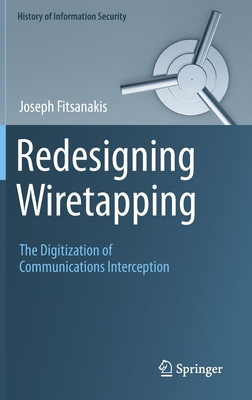Misunderstanding Media (Routledge Library Editions: Cultural Studies)
暫譯: 誤解媒體(羅特里奇圖書館版:文化研究)
Brian Winston
- 出版商: Routledge
- 出版日期: 2016-09-02
- 售價: $6,230
- 貴賓價: 9.5 折 $5,918
- 語言: 英文
- 頁數: 430
- 裝訂: Hardcover
- ISBN: 1138699985
- ISBN-13: 9781138699984
-
相關分類:
科技科普 Technology
海外代購書籍(需單獨結帳)
商品描述
The 1980s saw constant reports of an information revolution. This book, first published in 1986, challenges this view. It argues that the information revolution is an illusion, a rhetorical gambit, an expression of profound historical ignorance, and a movement dedicated to purveying misunderstanding and disseminating disinformation. In this historically based attack on the information revolution, Professor Winston takes a had look at the four central information technologies – telephones, television, computers and satellites. He describes how these technologies were created and diffused, showing that instead of revolution we just have ‘business as usual’. He formulates a ‘law’ of the suppression of radical potential – a law which states that new telecommunication technologies are introduced into society only insofar as their disruptive potential is contained. Despite the so-called information revolution, the major institutions of society remain unchanged, and most of us remain in total ignorance of the history of technology.
商品描述(中文翻譯)
1980年代不斷報導著一場資訊革命。本書首次於1986年出版,對此觀點提出挑戰。它主張資訊革命是一種幻覺、一種修辭策略、一種深刻歷史無知的表現,以及一場致力於傳播誤解和散佈錯誤資訊的運動。在這場基於歷史的對資訊革命的攻擊中,溫斯頓教授仔細檢視了四種核心資訊技術——電話、電視、電腦和衛星。他描述了這些技術是如何被創造和擴散的,顯示出我們所經歷的並不是革命,而是「一切照常」。他提出了一條「壓制激進潛力的法則」——這條法則指出,新的電信技術只有在其顛覆潛力被控制的情況下,才會被引入社會。儘管所謂的資訊革命,社會的主要機構仍然保持不變,而我們大多數人對技術的歷史仍然一無所知。














